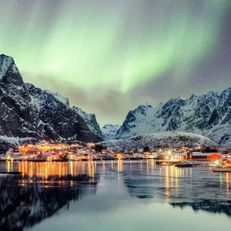Culture in France
Cultural experiences in France
France's culture, a fascinating blend of history, art, and way of life, is renowned worldwide for its depth and diversity. At the heart of this culture lies French cuisine, a symbol of culinary excellence, celebrated for its regional specialties, fine wines, and gastronomic heritage.
In parallel, French festivals and customs are deeply rooted in the national identity, from the nationwide celebration of Bastille Day to local grape harvest festivals that mark the rhythm of the year.
These traditions reflect not only the joy of celebration but also the pride of the French in their rich heritage, passed down from generation to generation. Thus, French culture forms a vibrant mosaic that celebrates the beauty of life in all its facets.
French cuisine
French cuisine is particularly distinguished by its diversity, sophistication, and the high importance it places on the quality and origin of ingredients. These factors make French cuisine one of the most influential and admired globally, known for its ability to transform food into an art form.
The concept of the "gastronomic French meal" has even been recognized by UNESCO as an intangible cultural heritage. This underscores the social significance of communal dining, celebrated as an act of culture and enjoyment.
5 typical dishes from France
The following dishes reflect the diversity and richness of French cuisine, from hearty stews and soups to sophisticated desserts and appetizers.
1. Coq au Vin

Coq au Vin (English: "rooster in wine") is a world-famous classic of French cuisine, combining chicken, red wine, mushrooms, bacon, and onions in a hearty stew. The slow cooking in red wine imparts a deep variety of flavors and a special tenderness to the chicken meat.
Coq au Vin originated in the rural areas of the Burgundy region. The slow preparation in wine made it possible to tenderize even older roosters.
2. Bouillabaisse

Bouillabaisse is an aromatic fish soup from Marseille that captures the essence of French Mediterranean cuisine. It combines various fish and seafood with a bouquet of herbs, saffron, and vegetables, cooked in a rich broth. Traditionally, the dish is served with the French garlic sauce Rouille and toasted bread.
For an authentic Bouillabaisse, a variety of fish and seafood are used to capture the diversity and richness of the Mediterranean. The exact composition can vary, but commonly includes fish from the scorpionfish family, conger eels, mussels, shrimp, and crayfish.
3. Soupe à l'oignon

The classic French onion soup, Soupe à l'oignon, is based on a rich broth, caramelized onions, white wine, and herbs. It is typically topped with a crispy slice of bread and melted Gruyère cheese, uniquely combining comfort and elegance.
4. Escargots à la Bourguignonne
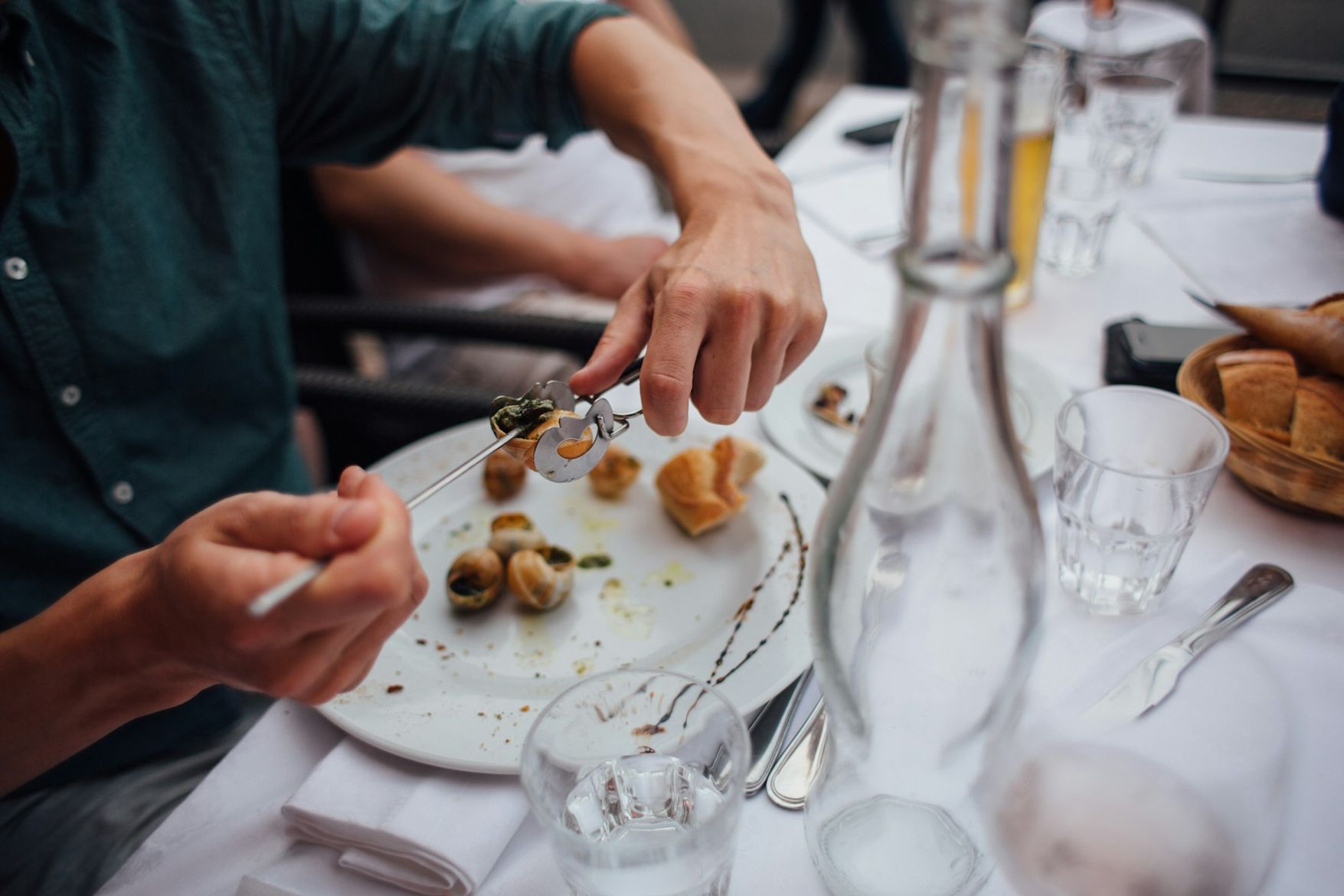
Escargots à la Bourguignonne is one of the most famous delicacies of French cuisine. It consists of snails baked in their shells with a spicy butter, abundant garlic, fresh parsley, and a hint of white wine. When baked in the oven, they develop a distinctly tender taste experience. This dish represents the refined simplicity of the Burgundy region and is a must-try for lovers of French gastronomy.
5. Crème Brûlée

Crème Brûlée is a quintessentially French dessert that masterfully combines elegance and flavor. Beneath a crispy caramelized sugar crust lies a velvety soft vanilla cream made from egg yolks and cream. The contrasting pleasure between the warm, sweet crust and the cool, aromatic cream makes each spoonful an unforgettable experience.
Drinks
French drinking culture is closely linked to its rich gastronomic tradition and is characterized by a variety of traditional beverages. In France, great emphasis is placed on quality and the harmony between drinks and food, with the social aspect of enjoyment taking center stage.
Wine
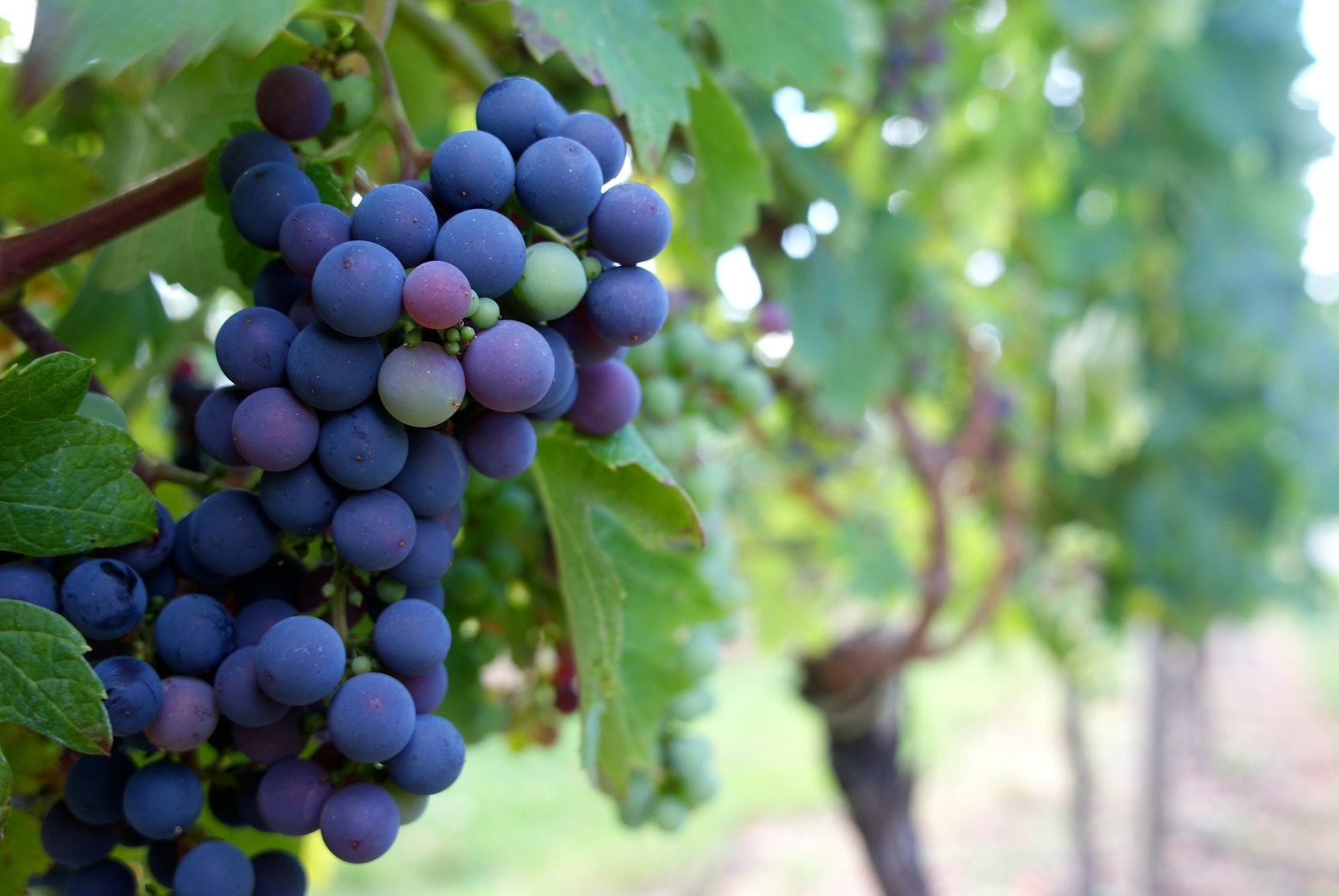
French wine is globally recognized for its excellence and diversity. With famous wine regions like Bordeaux, Burgundy, Champagne, and the Rhône Valley, France offers a rich spectrum of red, white, and sparkling wines. Each region imbues its wines with unique characteristics that result from the interplay of terroir, grape variety, and traditional craftsmanship.
Champagne

The most famous sparkling wine from France is Champagne—the epitome of French elegance. This sparkling wine is produced exclusively in the Champagne region according to strict specifications. Its unparalleled complexity and finesse arise from a second fermentation in the bottle. Whether for festive occasions or as a symbol of luxury, Champagne represents celebration and exclusivity.
Coffee
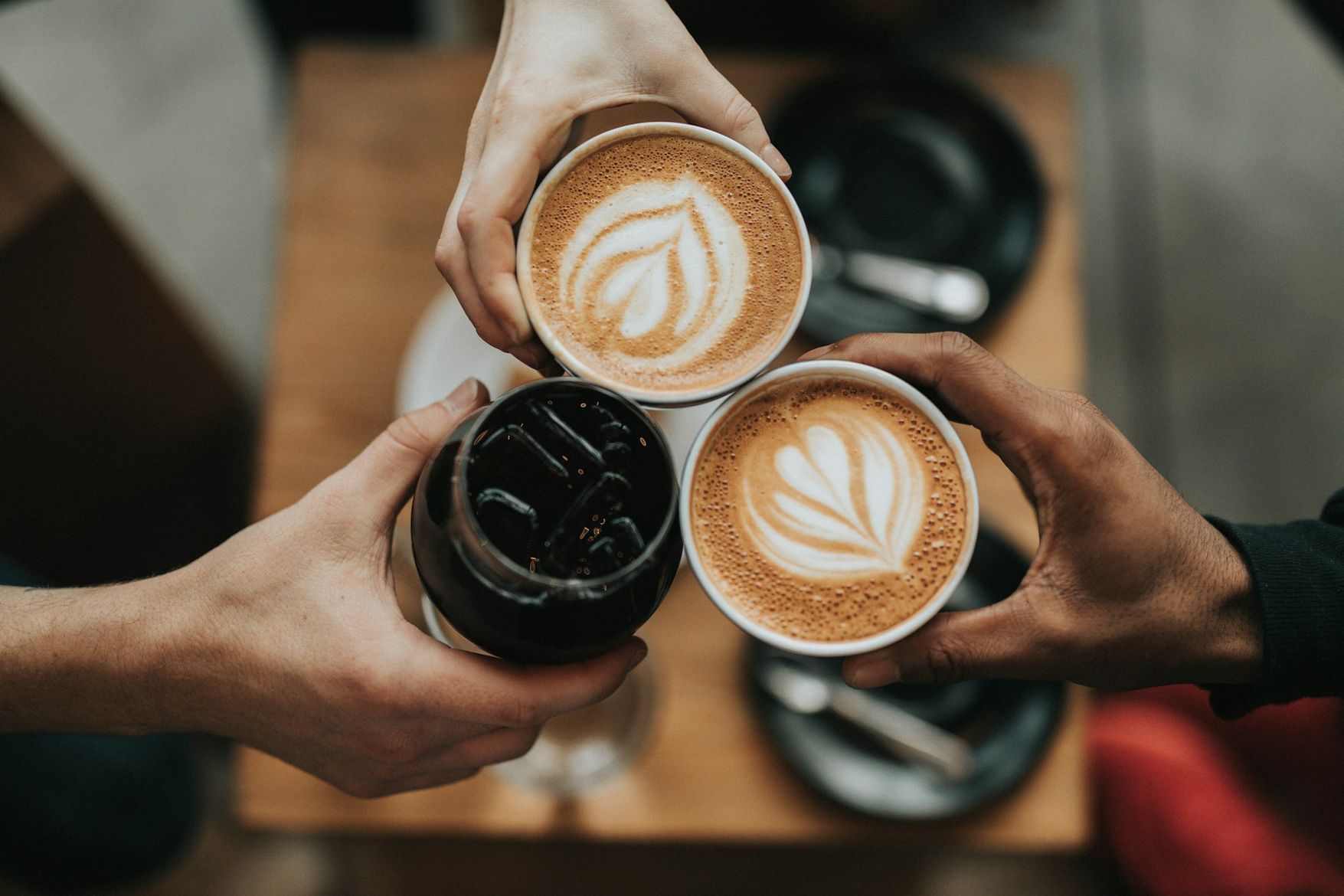
In France, coffee is more than just a drink; it is an institution. Whether as a morning kick-start, an afternoon break, or the conclusion to a fine dinner, espresso takes center stage. In the numerous cafés and bistros that shape the cityscape, the French celebrate the culture of coffee enjoyment and sociability.
Traditional festivals and customs
French festivals and customs reflect the rich cultural diversity of France and offer insights into the French way of life, history, and traditions.
Grape harvest festivals (Vendanges)
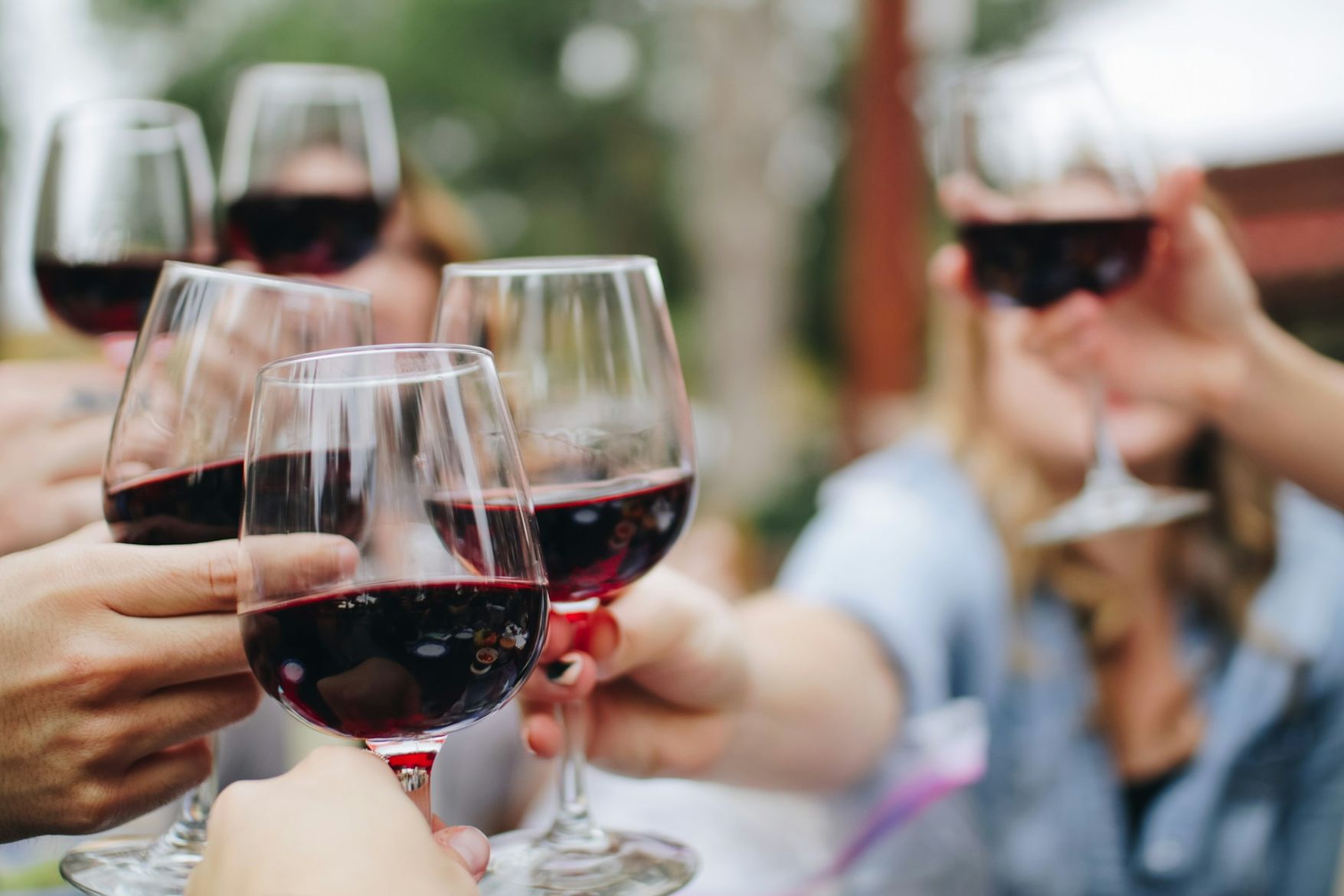
Viticulture is deeply embedded in French culture. Consequently, numerous grape harvest festivals are celebrated in wine regions like Bordeaux, Burgundy, and Champagne during late summer and autumn. These festivals mark the start of the grape harvest (Vendanges) and feature parades, wine tastings, and cultural events.
Fête Nationale (July 14)

On July 14, the French National Day, France celebrates the anniversary of the Storming of the Bastille in 1789, a key moment in the French Revolution. The celebrations include military parades on the Champs-Élysées in Paris, fireworks, balls, and festivities throughout the country.
Cannes Film Festival
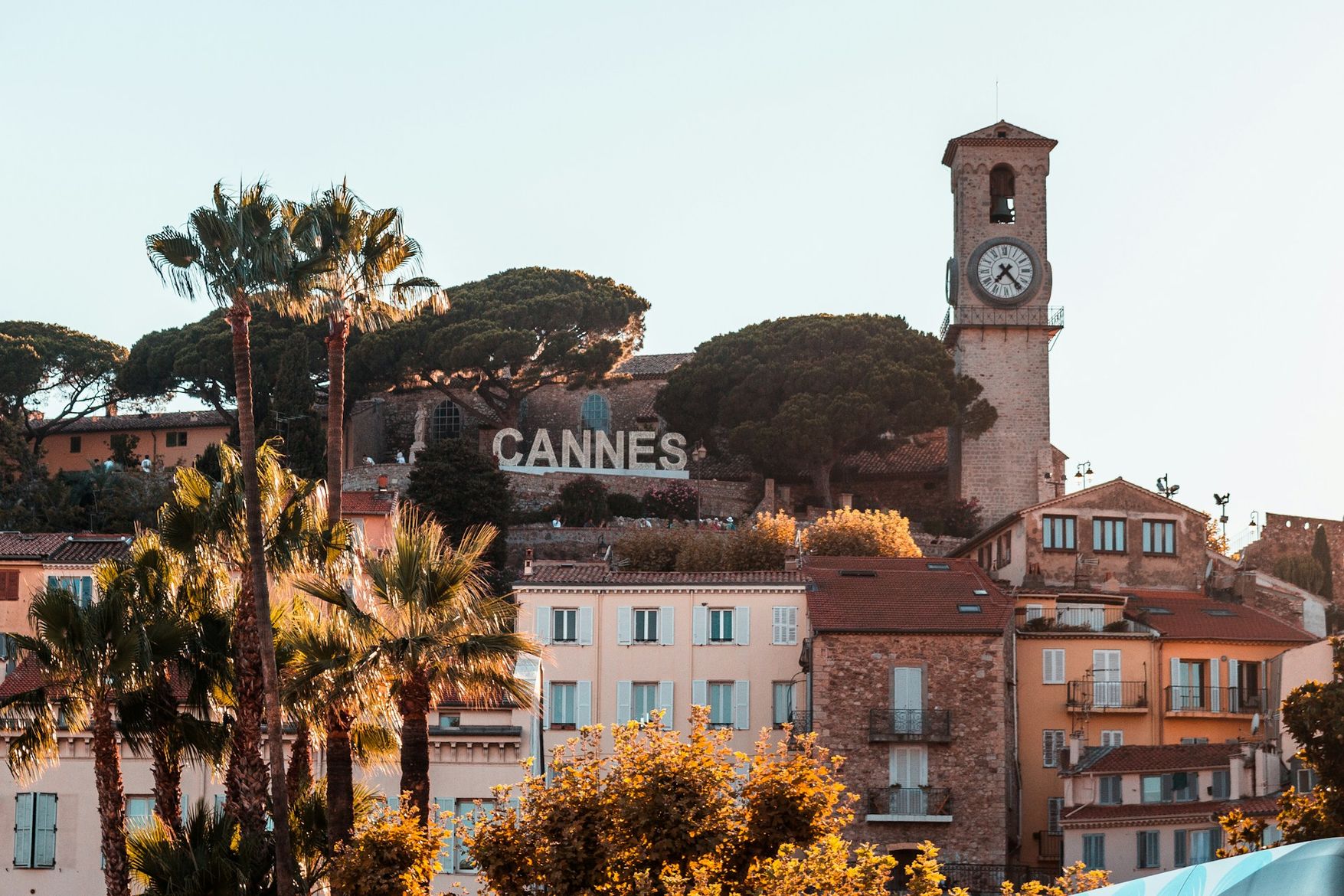
The Cannes Film Festival is one of the oldest and most prestigious film festivals in the world. It takes place every year in May in Cannes on the French Riviera. The festival attracts celebrities and filmmakers from around the globe and is a significant event for the film industry.
La Chandeleur (Candlemas)
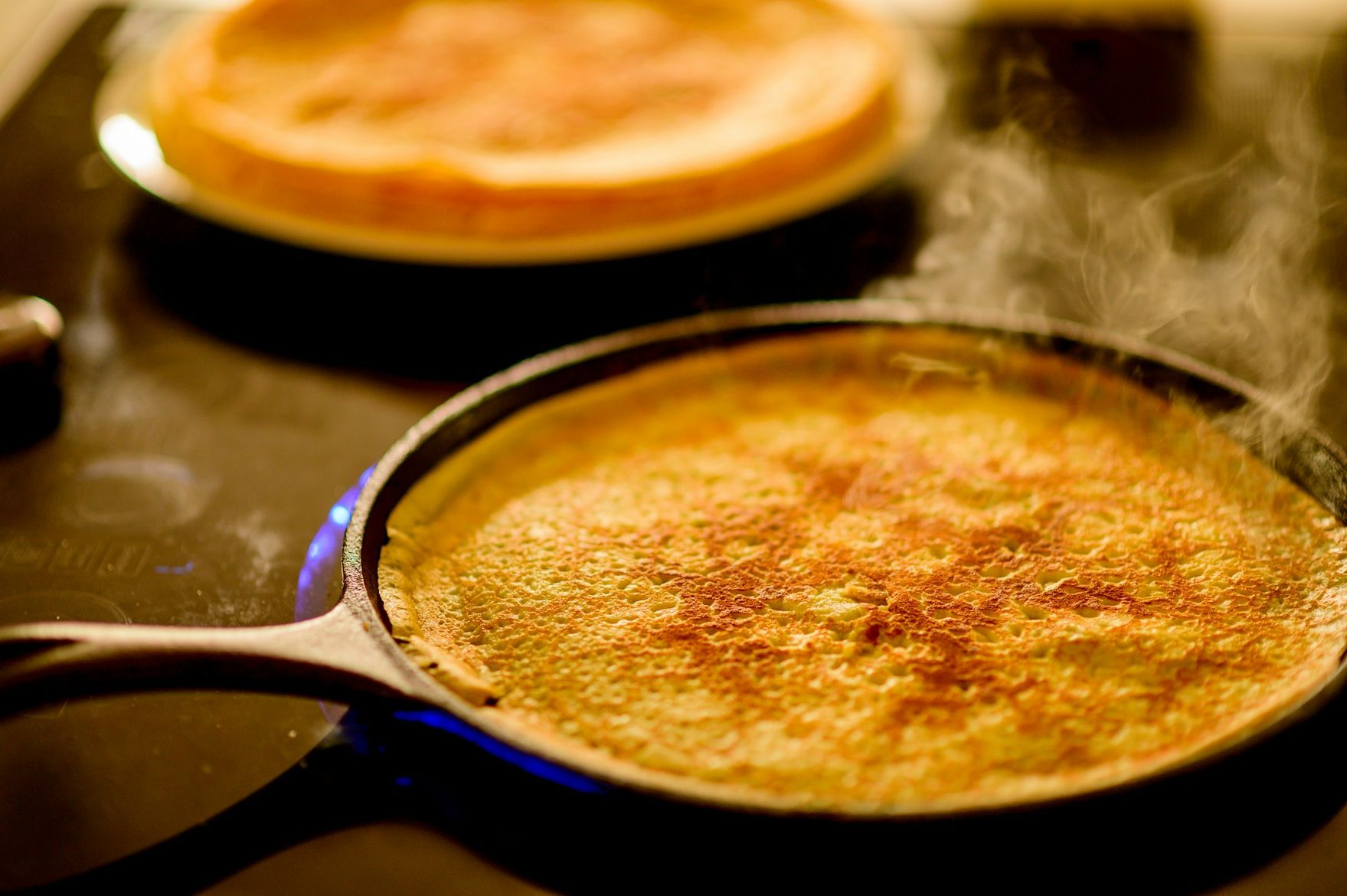
On February 2nd, 40 days after Christmas, France celebrates La Chandeleur, also known as Candlemas. Traditionally, crêpes are eaten on this day. It is said that the shape and color of the crêpes are reminiscent of the sun and light, symbolizing the lengthening days and the end of winter.
Experience French culture up close
French culture embodies a profound connection between past and present, manifesting in its renowned cuisine, vibrant festivals, and timeless customs. These elements blend cosmopolitan openness with deeply rooted traditions, highlighting France's unique position on the global cultural stage.
Are you ready to explore new cultural experiences in France?
Here you can learn more about toll regulations in France, so you can travel through the country stress-free.





